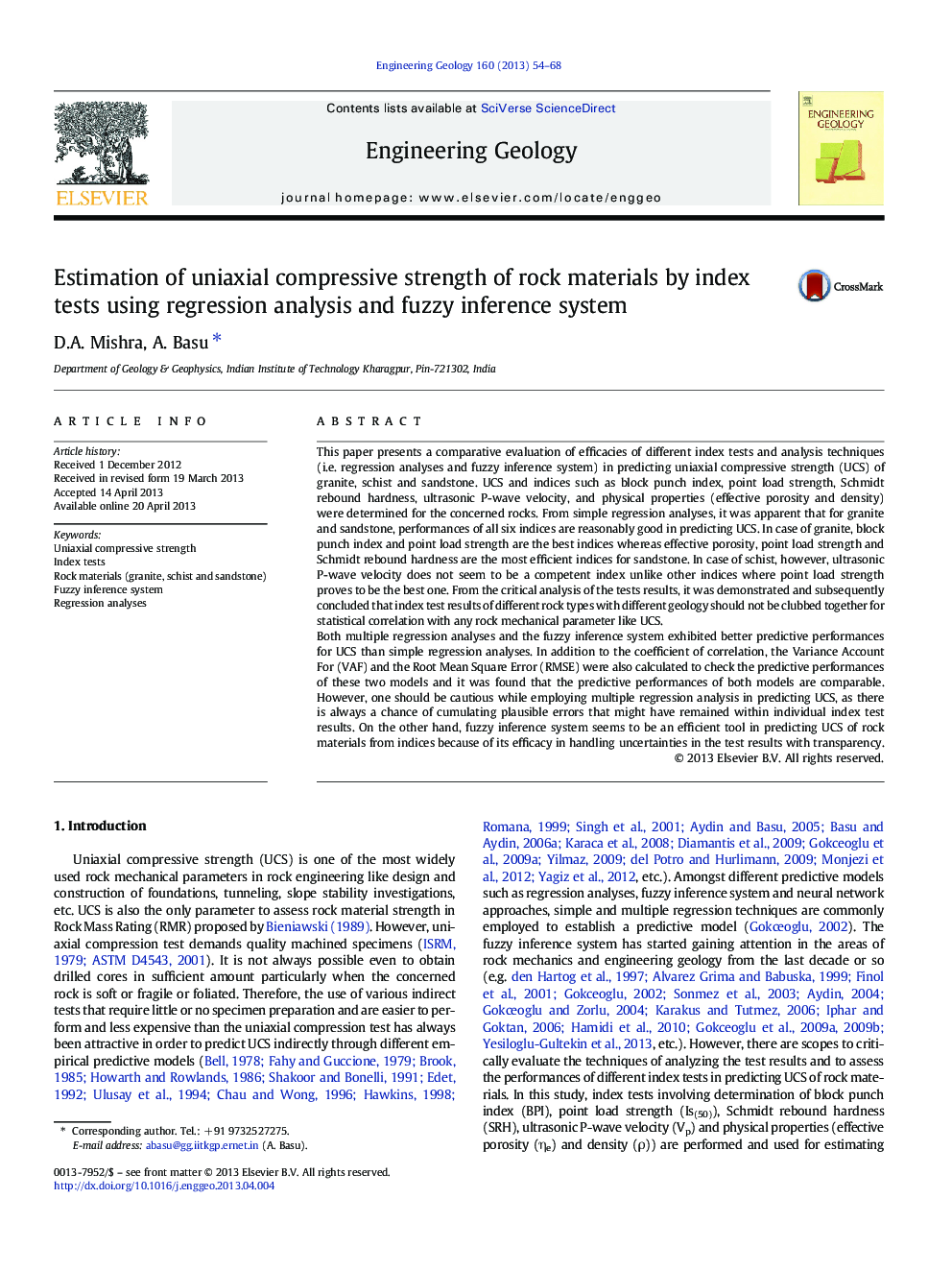| Article ID | Journal | Published Year | Pages | File Type |
|---|---|---|---|---|
| 4743629 | Engineering Geology | 2013 | 15 Pages |
•Different indices were used to predict UCS of granite, schist and sandstone.•Point load strength proved to be the best index in this regard.•Multiple regression and fuzzy inference system analyses were also employed.•Fuzzy inference system appeared to be the most efficient technique in predicting UCS.
This paper presents a comparative evaluation of efficacies of different index tests and analysis techniques (i.e. regression analyses and fuzzy inference system) in predicting uniaxial compressive strength (UCS) of granite, schist and sandstone. UCS and indices such as block punch index, point load strength, Schmidt rebound hardness, ultrasonic P-wave velocity, and physical properties (effective porosity and density) were determined for the concerned rocks. From simple regression analyses, it was apparent that for granite and sandstone, performances of all six indices are reasonably good in predicting UCS. In case of granite, block punch index and point load strength are the best indices whereas effective porosity, point load strength and Schmidt rebound hardness are the most efficient indices for sandstone. In case of schist, however, ultrasonic P-wave velocity does not seem to be a competent index unlike other indices where point load strength proves to be the best one. From the critical analysis of the tests results, it was demonstrated and subsequently concluded that index test results of different rock types with different geology should not be clubbed together for statistical correlation with any rock mechanical parameter like UCS.Both multiple regression analyses and the fuzzy inference system exhibited better predictive performances for UCS than simple regression analyses. In addition to the coefficient of correlation, the Variance Account For (VAF) and the Root Mean Square Error (RMSE) were also calculated to check the predictive performances of these two models and it was found that the predictive performances of both models are comparable. However, one should be cautious while employing multiple regression analysis in predicting UCS, as there is always a chance of cumulating plausible errors that might have remained within individual index test results. On the other hand, fuzzy inference system seems to be an efficient tool in predicting UCS of rock materials from indices because of its efficacy in handling uncertainties in the test results with transparency.
